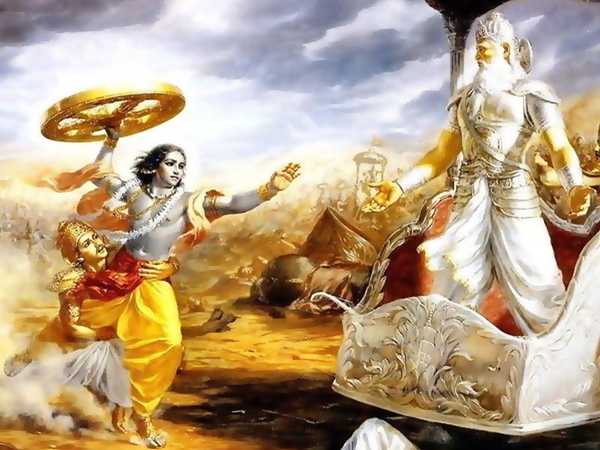Chapter 161

“Vaisampayana said, ‘On hearing these words of her afflicted parents, thedaughter was filled with grief, and she addressed them, saying, ‘Why areyou so afflicted and why do you so weep, as if you have none to lookafter you? O, listen to me and do what may be proper.
There is littledoubt that you are bound in duty to abandon me at a certain time. Sure toabandon me once, O, abandon me now and save every thing at the expense ofme alone. Men desire to have children, thinking that children would savethem (in this world as well as in the region hereafter). O, cross thestream of your difficulties by means of my poor self, as if I were araft. A child rescueth his parents in this and the other regions;therefore is the child called by the learned Putra (rescuer). Theancestors desire daughter’s sons from me (as a special means ofsalvation). But (without waiting for my children) I myself will rescuethem by protecting the life of my father. This my brother is of tenderyears, so there is little doubt that he will perish if thou diest now. Ifthou, my father, diest and my brother followeth thee, the funeral cake ofthe Pitris will be suspended and they will be greatly injured. Leftbehind by my father and brother, and by my mother also (for she will notsurvive her husband and son) I shall be plunged deeper and deeper in woeand ultimately perish in great distress. There can be little doubt thatif thou escape from this danger as also my mother and infant brother,then thy race and the (ancestral) cake will be perpetuated. The son isone’s own self; the wife is one’s friend; the daughter, however, is thesource of trouble. Do thou save thyself, therefore, by removing thatsource of trouble, and do thou thereby set me in the path of virtue. As Iam a girl, O father, destitute of thee, I shall be helpless and plungedin woe, and shall have to go everywhere. It is therefore that I amresolved to rescue my father’s race and share the merit of that act byaccomplishing this difficult task. If thou, O best of Brahmanas, goestthither (unto the Rakshasa), leaving me here, then I shall be very muchpained. Therefore, O father, be kind to me. O thou best of men, for oursake, for that of virtue and also thy race, save thyself, abandoning me,whom at one time thou shall be constrained to part from. There need be nodelay, O father, in doing that which is inevitable. What can be morepainful than that, when thou hast ascended to heaven, we shall have to goabout begging our food, like dogs, from strangers. But if thou artrescued with thy relations from these difficulties, I shall then livehappily in the region of the celestials. It hath been heard by us that ifafter bestowing thy daughter in this way, thou offerest oblations to thegods and the celestials, they will certainly be propitious.’
“Vaisampayana continued, ‘The Brahmana and his wife, hearing thesevarious lamentations of their daughter, became sadder than before and thethree began to weep together. Their son, then, of tender years, beholdingthem and their daughter thus weeping together, lisped these words in asweet tone, his eyes having dilated with delight, ‘Weep not, O father,nor thou, O mother, nor thou O sister!’ And smilingly did the childapproach each of them, and at last taking up a blade of grass said inglee, ‘With this will I slay the Rakshasa who eateth human beings!’Although all of them had been plunged in woe, yet hearing what the childlisped so sweetly, joy appeared on their faces. Then Kunti thinking thatto be the proper opportunity, approached the group and said these words.Indeed, her words revived them as nectar reviveth a person that is dead.'”




